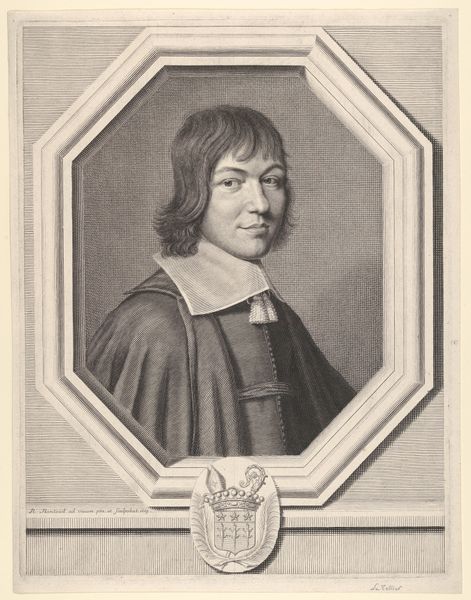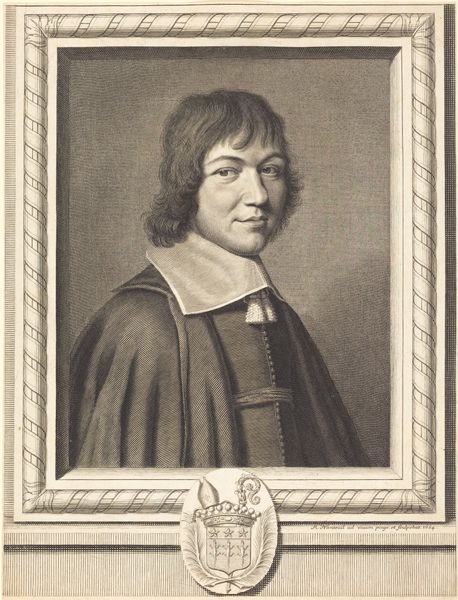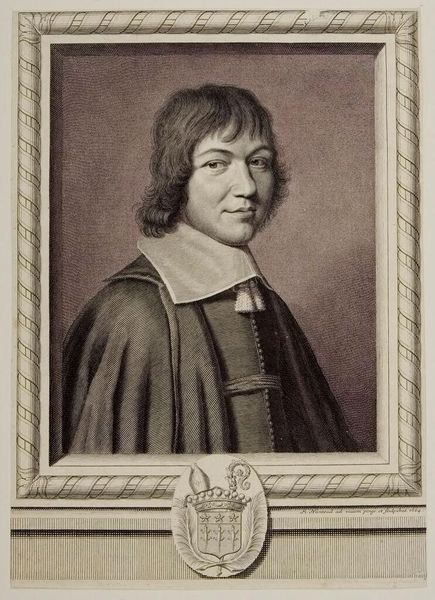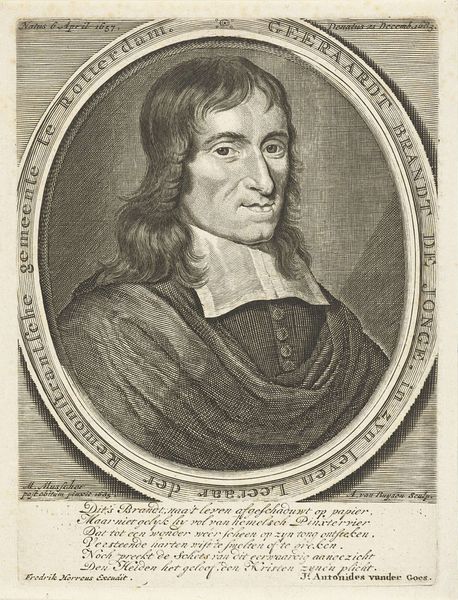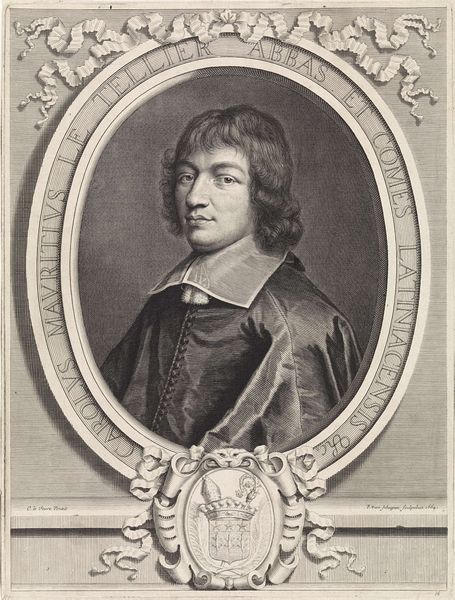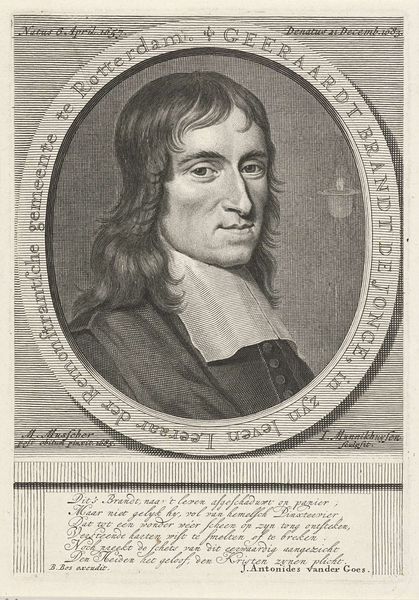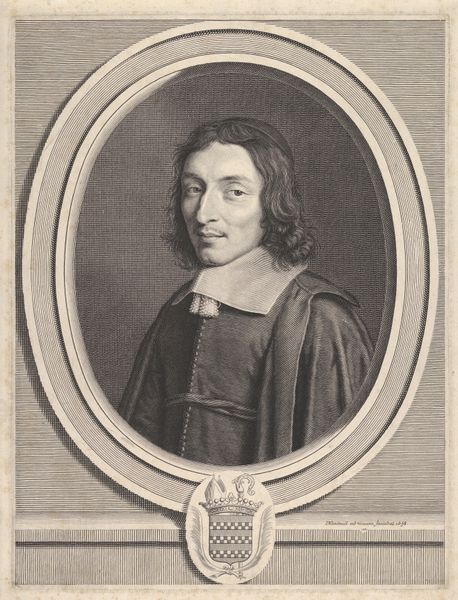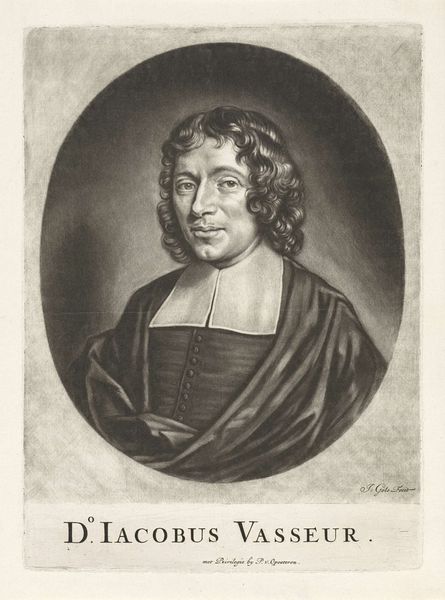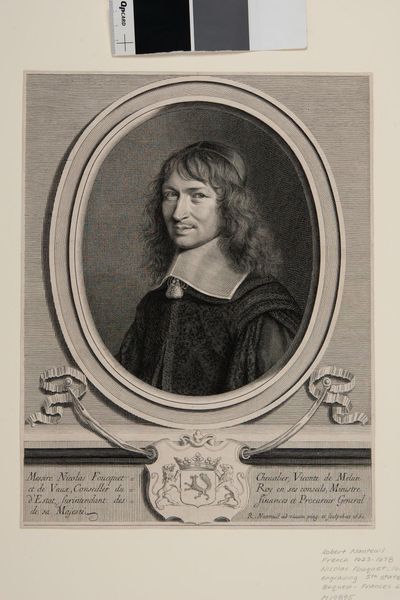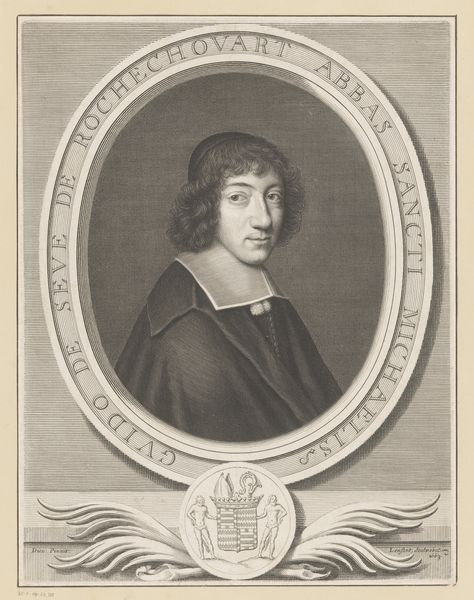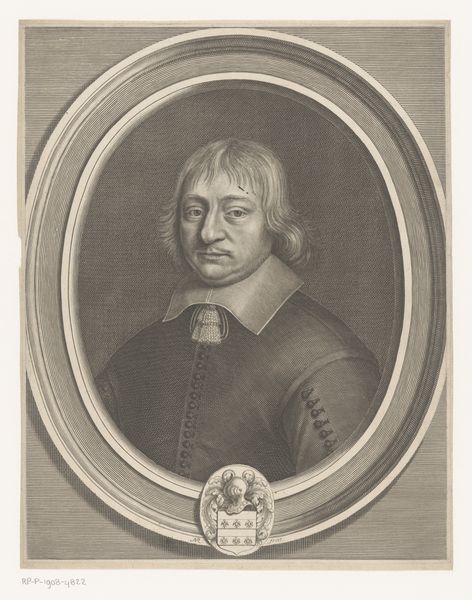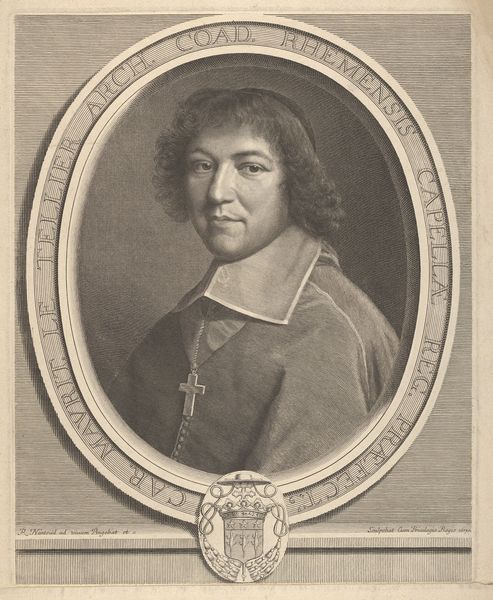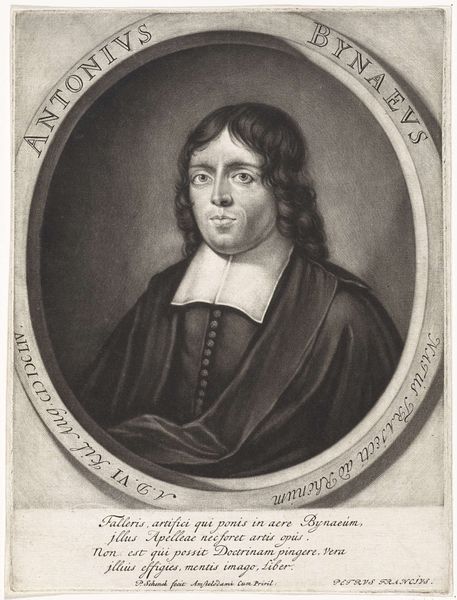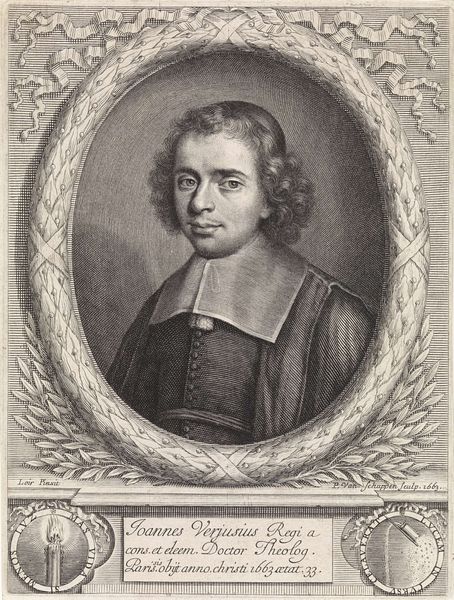
drawing, print
#
portrait
#
drawing
#
baroque
# print
Dimensions: Sheet: 16 7/8 × 11 1/8 in. (42.9 × 28.3 cm) Plate: 13 1/16 × 10 1/8 in. (33.1 × 25.7 cm)
Copyright: Public Domain
Editor: Here we have Robert Nanteuil’s "Charles-Maurice Le Tellier," a print from 1663. The fine lines of the engraving give the portrait a very crisp, almost cool feel. What stands out to you in this portrait? Curator: The oval frame immediately calls to mind a long lineage of portraiture – classical busts, royal cameos. Consider the subject, Charles-Maurice Le Tellier; note the visual language around him is speaking of power, of history, specifically referencing his place as an abbot through his coat of arms below. Even the Latin inscription suggests this enduring, unchanging quality. Editor: It seems like he’s being intentionally presented in a very specific light, almost as a timeless figure. Curator: Exactly! What visual cues lead you to that conclusion? It's not merely about capturing likeness. Think about how Nanteuil uses the framing, the inscription, and the subject's own attire, all these visual signifiers contribute to constructing and conveying status. This piece reveals how images actively work to create and reinforce meaning. It’s not a snapshot but a careful construction. Editor: So it's less about the individual and more about the role and the continuation of that role over time. The artist almost uses symbols to anchor the subject within the bigger structure of power, status, and tradition. Curator: Precisely. It reminds us that portraits are never truly neutral; they’re always carefully curated presentations, imbued with cultural memory and aspirational futures. Editor: That gives me a fresh outlook on portraiture—recognizing all of the cultural messaging, which has been really interesting to discover! Curator: Indeed! This symbolic encoding offers us invaluable insights into a time, a person, and their understanding of place within the world.
Comments
No comments
Be the first to comment and join the conversation on the ultimate creative platform.
